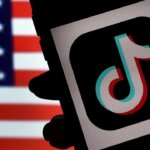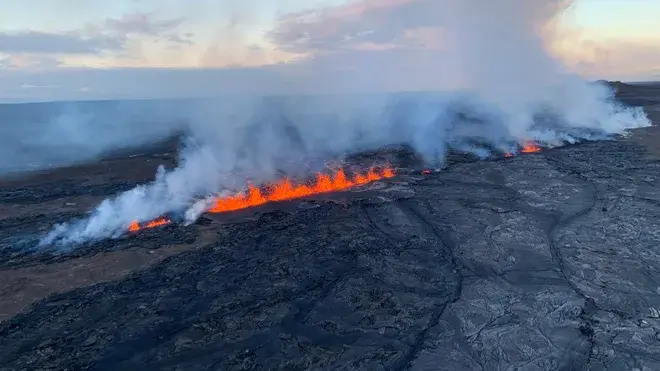The legal battle over TikTok’s operations in certain regions took a significant turn as the TikTok ban was upheld in court, solidifying restrictions on the popular short-video app. The decision has sparked widespread discussions about its implications for users, content creators, and businesses dependent on the platform. In this article, we’ll explore the details of the court ruling, its impact, and what the future holds for TikTok.
Why Was TikTok Banned?
TikTok, owned by Chinese tech giant ByteDance, has faced scrutiny over alleged concerns related to:
- Data Privacy: Fears that user data could be accessed by the Chinese government.
- National Security: Claims that the app poses a potential security risk in certain regions.
- Content Moderation: Criticism over its handling of misinformation and harmful content.
The ban has been implemented in several countries, including India, and proposed in others like the United States, creating a global debate around the app’s presence.
Key Details of the Court’s Decision
The recent ruling upholding the ban comes after extensive legal challenges by ByteDance and advocates arguing for TikTok’s reinstatement.
Court Ruling Highlights
- Legal Grounds: The court cited national security and data protection as primary reasons for upholding the ban.
- TikTok’s Defense: ByteDance argued that no evidence supports claims of data misuse or security breaches.
- Impact on Free Speech: The decision has raised concerns about censorship and digital rights.
Timeline of Events Leading to the TikTok Ban
| Date | Event |
|---|---|
| June 2020 | India bans TikTok citing data security and sovereignty issues. |
| August 2020 | Former U.S. President Trump signs an executive order targeting TikTok. |
| June 2021 | U.S. federal courts block the proposed ban temporarily. |
| December 2023 | A court upholds the TikTok ban, marking a significant setback for ByteDance. |
Impact of the TikTok Ban
1. For Users
The ban means users in affected regions lose access to TikTok’s engaging content, creative tools, and vibrant community.
- Creators: Content creators reliant on TikTok for income and visibility are forced to seek alternatives.
- Entertainment Loss: Users miss out on trending videos, challenges, and cultural content.
2. For Businesses
Many businesses used TikTok for marketing and customer engagement. The ban disrupts:
- Advertising Campaigns: Brands that relied on TikTok for ads must pivot to other platforms.
- E-commerce Integration: TikTok’s in-app shopping features, a boon for small businesses, are no longer accessible.
3. For TikTok’s Global Strategy
The ruling impacts TikTok’s expansion plans and raises questions about its viability in politically sensitive markets.
Alternatives to TikTok
For creators and businesses seeking to fill the void left by TikTok, here are some popular alternatives:
| Platform | Features |
|---|---|
| Instagram Reels | Short videos, wide audience, strong integration with Instagram. |
| YouTube Shorts | Monetizable content with long-term audience building. |
| Snapchat Spotlight | Viral video potential and rewards for creators. |
| Triller | Music and dance-focused platform for creative expression. |
TikTok’s Response to the Ban
In response to the court’s ruling, TikTok issued a statement expressing disappointment and reiterating its commitment to:
- Transparency: ByteDance claims it adheres to strict data privacy standards.
- Collaboration: TikTok has called for discussions with governments to address concerns.
- Support for Creators: The platform has promised to explore legal options and find ways to support its global creator community.
Legal Experts Weigh In
The court’s decision has drawn mixed reactions from legal and policy experts.
| Expert | Perspective |
|---|---|
| David Mason | “The ruling is a victory for national security interests, but it also sets a precedent for restricting digital platforms.” |
| Sandra Lopez | “This decision raises questions about censorship and the need for global digital governance.” |
| Michael Johnson | “TikTok’s inability to address privacy concerns effectively contributed to its legal challenges.” |
Global Reaction to the TikTok Ban
The ruling has triggered varied reactions globally:
1. In Affected Regions
- Supporters: Advocates of the ban argue it protects national security and user data.
- Critics: Digital rights activists claim it limits freedom of expression and innovation.
2. International Markets
Countries still permitting TikTok are observing the developments closely, as similar concerns could influence their policies.
Economic Implications
1. Loss of Revenue
The ban cuts off TikTok’s significant revenue streams from affected regions, including:
- Ad Sales: Brands are forced to reallocate their budgets.
- In-App Purchases: A major revenue source from user transactions is halted.
2. Impact on Jobs
TikTok employees and affiliated creators face job losses and reduced earnings.
3. Ripple Effect on Tech Industry
The ruling signals stricter scrutiny for tech platforms, potentially affecting other apps with global operations.
Comparison: TikTok vs. Alternatives
| Feature | TikTok | Instagram Reels | YouTube Shorts | |————————–|——————————|——————————| | Audience Size | Over 1 billion users globally| Similar, but regional focus | Growing, with wide reach | | Monetization | In-app purchases, ad revenue | Limited ad revenue options | Monetizable with ads | | Creative Tools | Advanced editing features | Basic tools, strong filters | Basic but improving |
What’s Next for TikTok?
While the ban marks a significant challenge, TikTok’s future will depend on its ability to:
- Address Security Concerns: Collaborate with governments to ensure robust data protection.
- Diversify Operations: Focus on expanding in less restrictive markets.
- Adapt to Legal Challenges: Strengthen its legal team to navigate regulatory hurdles globally.
FAQs About the TikTok Ban
1. Why was TikTok banned?
The ban was imposed due to concerns about data privacy, national security, and content moderation.
2. Which countries have banned TikTok?
India, some regions in the U.S., and other countries have imposed full or partial bans.
3. How can creators adapt to the ban?
Creators can transition to alternative platforms like Instagram Reels or YouTube Shorts to maintain their audience.
4. Will TikTok challenge the ruling?
Yes, ByteDance has indicated plans to pursue further legal action.
5. Are other apps at risk of similar bans?
Yes, increased scrutiny of data privacy may impact other apps with global operations.
Conclusion
The TikTok ban upheld in court signifies a pivotal moment in the ongoing debate about digital privacy, national security, and freedom of expression. While the ruling has serious implications for TikTok, its users, and businesses, it also highlights the need for clear regulatory frameworks to govern tech platforms. As creators and businesses adapt, the world will be watching closely to see how TikTok navigates these turbulent times.






